Policy Speech by the Governor of Tokyo, Yuriko Koike, at the Second Regular Session of the Tokyo Metropolitan Assembly, 2019
In opening the second regular session of the Tokyo Metropolitan Assembly in 2019, I wish to relate my basic stance on future metropolitan administration.
Amid celebration by the people of Tokyo and Japan, His Imperial Majesty the Emperor ascended to the throne on May 1. As governor of the capital -- Tokyo -- I wish to offer my most heartfelt congratulations.
1. Tokyo in the Reiwa era: Maturity and ongoing growth
-
This is the first regular session of the Tokyo Metropolitan Assembly since the start of the Reiwa era. I am now renewing my determination to work together with the members of this Assembly and the people of Tokyo to create a Tokyo full of hope where everyone can shine.
The first year of Reiwa is not only the first year of a new era in which we will speed up creation of the “new Tokyo”; it is also the year in which we advance final preparations for the Tokyo 2020 Games to ensure that it serves as a springboard to the future. It goes without saying that this year will be a historic one for Tokyo.
In this Reiwa era, the graying and shrinking of Japan’s population will proceed simultaneously. In 2050, it is estimated that around one in six people will be elderly worldwide, making the aging population a global challenge. Amid such circumstances, how can Japan, in which the 65 and older population already accounts for almost 28 percent of the population, plot a path to growth with this proportion continuing to rise? Japan, which should lead the world in demonstrating a new growth model, needs to undergo a paradigm shift in order to resolve issues that cannot be taken on by the conventional approaches we have taken to date. And, so that Tokyo can stand at the forefront of this shift, we must work to further evolve as a mature city that continues to generate growth in an environment where anyone and everyone can live with peace of mind and play an active role in society.
-
The pillars to support achievement of that goal are the three key focuses of this fiscal year’s budget, which is the largest we have ever compiled: bolstering Tokyo’s urban power, making Tokyo truly productive, and connecting people. We will strengthen Tokyo’s ability to respond to disasters and climate change, enhance its ability to be truly productive, and fully draw out the strengths of the people, who are the driving force behind Tokyo’s growth. Our mission as Japan’s capital is none other than to use these initiatives to raise Tokyo’s degree of maturity as a city and strongly drive Japan’s economy even as the population declines. To fulfill this mission, we have strengthened systems for implementing policies, including establishing the Office for Strategic Policy and ICT Promotion and Office for Housing Policy. Concerning TMG-wide policy challenges, including nationwide collaboration for a mutually beneficial and prosperous relationship, preparation of an environment that nurtures peace of mind for the elderly and participation in society by women, and the use of the special zones system and advanced technologies, we are establishing systems for close cross-bureau cooperation for swift implementation of innovative policies. While continuing to raise the productivity of the TMG organization in the Reiwa era as well, we will strongly strive to achieve the Grand Reform of Tokyo, which continues to boldly take on challenge after challenge with new approaches.
-
To accurately respond to a period of great change, we commenced studies in April to formulate the tentatively named “New Long-Term Plan” as the long-term compass for Tokyo with an eye to the years beyond 2020. We have started TMG-wide discussions on the future vision for Tokyo in 2030, keeping in mind the situation projected for Tokyo in the 2040s. We will further evolve the three cities concept (Safe City, Diversity (Diverse City), Smart City) and create a new vision for the city that strikes a balance between sustainable “growth,” which is supported by the power of the people, and “maturity,” built on the legacy of the Games, which enables everyone to live full lives with peace of mind. To that end, we will advance study of the plan by taking a bird’s-eye view, while considering the opinions of Tokyo citizens and the deliberations of this Assembly, as well as global standards the world is striving to achieve, such as the UN Sustainable Development Goals (SDGs). First, we aim to sort out the points for discussion by August.
-
Based on results achieved to date, we will further accelerate the Reform Plan for 2020 that we have been advancing to change how business is conducted at the TMG, as well as the structure of the organization. Along with this month’s establishment of a sub-committee of experts to improve the effectiveness of self-evaluations conducted by each bureau, we aim to brush up the “policy evaluation” system that we launched this fiscal year as a mechanism for TMG bureaus to constantly review their programs. Additionally, concerning TMG Policy Collaboration Organizations, whose position to implement policies in tandem with the TMG was more clearly defined, last month, we released revised editions of our strategy for utilizing these organizations, as well as the management reform plans drawn up by each organization. I will be meeting with the heads of these organizations to exchange views, and will channel this into further strengthening their management strategy and ability to advance policy. Amid these turbulent times worldwide, and with technological innovations advancing rapidly, for Tokyo to achieve the growth and maturity it seeks, we must steadily improve the overall functions of the TMG Group, including organizations that work alongside the TMG to implement policies.
2. Realizing a Tokyo that shines beyond 2020
Tokyo will continue to shine in the years beyond 2020. In order to establish a model for a sustainable city that can achieve this goal, we will implement a wide range of measures.
-
Initiatives for a zero-emission Tokyo
Resolving the global issue of climate change can no longer be left up to national governments alone. In a time when over half the world’s population dwells in cities, cities must take the lead and join together to take action. And, Tokyo will stand at the forefront of these efforts.
Last month, at the U20 Mayors Summit, for which Tokyo served as Chair, we held vigorous discussions with major cities of the world on themes such as climate change and sustainable economic growth in order to deliver the opinions of cities to the G20. On the final day of the summit, we adopted a communique containing a strong message from cities, and delivered that to Prime Minister Abe, who accepted it as the leader of the country serving as this year’s G20 Chair. At the summit, I declared that Tokyo would realize its zero-emission Tokyo initiative to contribute to achieving worldwide net-zero CO2 emissions by 2050. We will formulate the concrete strategy within the year to achieve this goal and comprehensively implement climate change adaptation and mitigation measures.
We have also just set ambitious goals for reducing plastic use and spreading the use of electric vehicles (EVs) and will broadly promote these initiatives. In April, we received an interim report from the panel of experts we established to study waste related issues, which stated that we must drastically change the way we use plastics. Based on the panel’s final report, which will take into consideration the global situation, including regulations on the import and export of plastic waste, we will compile a plastic-use reduction program for the TMG. Concerning EVs, this fiscal year, we have expanded eligibility for subsidies for electric vehicle purchases to include individuals and large corporations. With regard to charging stations, which will serve as the infrastructure for an EV society, in addition to launching subsidies to support installation at locations such as commercial facilities, we will also study charging station installation incentives that seize upon opportunities created by city and town development. We will also launch our own Council to Promote a Zero-Emission TMG. And, uniting TMG-wide to promote this pioneering measure, we will thoroughly demonstrate our initiative as a city with advanced environmental policies to change the world from Tokyo.
Expanding the use of renewable energy through the RE100 initiative
RE100 (Renewable Energy 100%), an international initiative in which participating companies aim to source 100% of the power needed to run their business with renewable electricity, is also showing signs of growth in Japan. To add the TMG’s support to this movement, starting in August, we will also switch over to renewable energy to supply 100% of the electricity used by the TMG Main Building No. 1. Yesterday, we hosted an “action meeting” for companies working toward the objectives of RE100 and power companies to have members of the public and private sectors share best practices and visions for the future. Tokyo will take this opportunity to lead and work to further spread the RE100 movement, including calling out to a broad range of companies to encourage them to use renewable energy.
-
Promoting the Tokyo Declaration -- The vision for urban disaster preparedness
Ensuring the safety and peace of mind of the people, who uphold the vitality of the city, is absolutely key to Tokyo’s maturity and ongoing growth. Last month, at the Urban Resilience Forum Tokyo (URF) international conference that we held in conjunction with the U20 Mayors Summit, we shared lessons learned from past disasters and exchanged opinions on specific measures born of those experiences. And, we promoted to the world the disaster preparedness vision cities should pursue in the form of the Tokyo Declaration, which was adopted at the conference. URF participating cities also agreed on various forms of mutual support with regard to disasters. With this valuable asset of cross-border cooperation, we will continue working to evolve Tokyo’s disaster preparedness measures.
Fortifying our defenses against floods
With this year’s rainy season and typhoon season soon to be upon us, we will also fortify our defenses against urban flooding. Concerning the “My Timeline” initiative, which enables residents to create a timeline showing the actions they should take when a disaster strikes and confirm these actions, Tokyo has now developed its own original set of “My Timeline” materials designed for a range of disasters, including floods, storm surges, and sediment disasters. We are working to expand use of the timeline through various opportunities, including the sediment disaster drill that we will jointly host with Hinohara Village this month. At a meeting of the TMG’s council to mitigate river flooding disaster related damage last week, I, along with the mayors of Tokyo municipalities, reconfirmed the importance of minimizing disaster related damage through efforts such as the provision of accurate information on flooding and evacuation. Through the spread of “My Timeline” and collaboration with the municipalities to distribute the appropriate information at the appropriate time, we will contribute to having Tokyo residents take proper action to evacuate when a disaster strikes.
We have started studying the construction of new regulating reservoirs -- a project we decided to speed up in response to the emergency overhaul of measures for disasters that we conducted last fiscal year. In the spirit of “always be prepared,” we will continue to comprehensively promote flood protection measures, from both structural and non-structural approaches.
To eliminate tragic automobile accidents
Automobile accidents caused by elderly drivers have become an issue in society. Through approaches such as ensuring safe driving and encouraging understanding regarding voluntary driver’s license return, we must quickly take action to prevent accidents. As an emergency measure, we have decided to newly provide subsidies for the installation of devices effective in preventing accidents such as attachments that prevent sudden unintended acceleration when the driver accidently applies the gas pedal instead of the brake. And, with respect to the voluntary driver’s license return initiative that we have been working to promote, we are advancing efforts to encourage relevant organizations to further enhance benefits for those who have returned their licenses.
In addition, we will establish a new project team within the TMG tomorrow to develop further measures. We will work across TMG bureaus to devise ideas and broadly study initiatives, including field trials aimed at helping senior citizens get around in areas with poor transportation networks.
Furthermore, to protect children from accidents, we must ensure safety along the routes they use. We will work with the police, municipalities, and others to perform emergency road inspections, and based on those results, we will advance measures that need to be taken. Through such efforts, we will implement measures from multiple angles to eliminate tragic traffic accidents.
Realization of a city where anyone can enjoy feeling safe and secure
In addition to scams and petty fraud cases, heinous crimes, such as armed robbery, are also being committed through the use of “apo-den” telephone scams. In light of such circumstances, we will proactively advance measures to improve public safety in Tokyo, such as promoting the installation of automatic phone recording devices. And, in response to the fact that organized crime groups are still collecting “protection money” from businesses such as restaurants and bars in entertainment districts, we are submitting a proposed amendment to the Tokyo Metropolitan Ordinance for Eliminating Organized Crime Groups at this regular session of the Assembly. By designating Tokyo’s major entertainment districts as “Special Improvement Districts for the Elimination of Organized Crime Groups” and cracking down on the provision of “protection” services, payment of money for such “services,” and other activities, we will continue to promote a wide range of initiatives to realize a city where anyone can enjoy feeling safe and secure.
-
Realizing Society 5.0 and the Global Financial City: Tokyo Vision
We will aggressively work on a growth strategy to contribute to the creation of new values so that Tokyo and Japan can continue generating growth for the future. To realize the Society 5.0 initiative, which will be key to that strategy, last month, we launched a study panel made up of experts from a wide range of fields, including finance, economy, and information technology, which has started discussions on the vision for Tokyo and the direction for implementation of policies applying advanced technologies. As we receive various ideas that go beyond the framework of government, we will further refine Tokyo’s ability to be truly productive.
For Tokyo to win in the global competition between cities, vitalization of finance, which is said to be the blood of the economy, is crucial. Japan’s first financial promotion organization, FinCity.Tokyo, which will play a major role in realizing the Global Financial City: Tokyo Vision, will finally be launched this week on the 7th. By having the public and private sectors utilize their respective strengths and partner together to effectively promote Tokyo’s appeal as a financial market, we will build the financial network in Japan and abroad, and attract foreign financial companies at an even faster pace.
Promoting tourism and nationwide collaboration
With regard to tourism promotion, an essential growth strategy for Tokyo, we will advance initiatives that utilize the rich nature of the Tokyo islands. Along with the Ogasawara Islands, Japan also boasts Hokkaido’s Shiretoko, the Shirakami-Sanchi Mountains, and Yakushima Island as UNESCO World Heritage Sites. We will collaborate with other local governments, who have attractive tourism resources such as these, to promote information through a joint website, hold events for businesses to develop new tours, and work to attract even more tourists using the World Heritage Site brand image.
While advancing tourism promotion that leverages the attractions of Miyakejima Island, where Mt. Oyama creates a unique natural environment and scenery, at the same time, we must also protect the precious nature there. Therefore, following the Ogasawara Islands and Mikurajima Island, we will introduce Tokyo-style eco-tourism to the area. We determined appropriate rules to be implemented, such as identifying areas to be off-limits to tourists, and will conclude an agreement with Miyake Village next week for preparations, including inviting monitors to participate in trial tours, we will launch operations next fiscal year.
Currently, the TMG is also conducting tours to support the areas affected by the Great East Japan Earthquake. The tours are mainly for tourists who want to visit Fukushima for sightseeing purposes. Now, to expand visits to the area by business travelers, I will meet with the governor of Fukushima Prefecture the day after tomorrow to sign a new agreement. To further support recovery, and as part of efforts to collaborate with regions all around Japan, we will develop model itineraries that include visits to Fukushima for those who come to Tokyo for conferences or other purposes, and enhance efforts to attract MICE (meeting, incentive travel, conference, exhibition/event) visitors using Tokyo and Fukushima’s respective attractions.
Last month, I met with the governor of Miyagi Prefecture, and we agreed to cooperate in the area of waterworks, including provision of technology and expertise by the TMG. The agreement also covered mutual support in times of disaster. From the standpoint of coexisting and prospering together, we will continue to deepen collaboration in various fields with regions across Japan, and by leveraging the respective strengths of local autonomies through advancement of a true revitalization of local economies to create dynamic communities, I hope to contribute to sustainable growth for the entire country.
Town development to support Tokyo’s growth
For town development that supports Tokyo’s sustainable growth, we will work to enhance urban functions utilizing the respective characteristics of each area of Tokyo.
For example, to realize a people-friendly area around Shinjuku Station, which is undergoing redevelopment to become a functional terminal station that is easy for anyone to use, we will start procedures for finalizing city planning within the year. And, concerning Tsukiji, which has great potential as a large plot of land centrally located in Tokyo, we formulated the Urban Redevelopment Policy for Tsukiji in March based on the opinions of Tokyo citizens and this Assembly. In accordance with this policy, while utilizing resources such as the expertise of the private sector, we will greatly bring out the appeal of the area to help maximize Tokyo’s overall value.
Enhancing the arterial road network as the foundation for a “truly productive” Tokyo
Roads, which generate a range of economic spillover effects and will also serve as the foundation for Tokyo to win in the global competition, are the basis for a truly productive Tokyo. The eastbound section of the National Route 357 Tokyo Port Tunnel, which I have repeatedly requested early completion of, opened yesterday. Along with the westbound section already in use, a new road network for the Tokyo waterfront area has now been completed. This week on the 8th, Radial Route No. 5 will open, forming new infrastructure to link Tokyo’s special wards and the Tama area, which will help relieve congestion on Koshu-kaido Avenue and improve access to Rugby World Cup 2019™ and Tokyo 2020 Games venues. To achieve Tokyo’s sustainable growth, we will continue steadily working to complete the city’s arterial road network.
Enhancing the functionality of Haneda Airport to raise international competitiveness
It is extremely crucial that we improve the functions of Haneda Airport to raise Japan’s international competitiveness, as well as for the smooth delivery of the Tokyo 2020 Games. With regard to the change in flight paths proposed by the national government, the TMG has actively cooperated to facilitate steady advancement of discussions with the local communities affected. We have also requested that the national government provide detailed information, and implement thorough measures to address noise and ensure safety. In response, the national government has held five information sessions for residents, and is advancing comprehensive measures such as mandating airlines to take measures to prevent parts from falling off of aircraft. And, last month, it compiled measures to respond to comments from Tokyo residents. I believe such handling by the national government deserves some recognition. However, I will request their even greater efforts to further deepen the understanding of the people of Tokyo and relevant municipalities.
3. To fully utilize the power of “people,” the force driving Tokyo’s development
Next, let me speak about our initiatives to fully utilize the power of “people,” the driving force behind the development of Tokyo.
-
We will continue to strongly advance measures to not only secure “quantity,” in which we promoe the development of facilities, but also to raise “quality” so that parents can feel safe about entrusting their children. Our measures addressing the issue of daycare waiting lists in order to build a society where all who wish can happily raise children and work as well, which are being advanced in collaboration with the municipalities based on the three pillars of “promoting the establishment of daycare centers,” “providing support to secure personnel and reduce turnover,” and “improving support to daycare center users,” are steadily bearing fruit. The number of accredited day care centers have increased by about 260 from last year. And this year, even amid the increase in the number of applicants for a place in day care, the children on the waiting list, who numbered 8,466 as of April 1, 2016, are expected to reduce significantly to about 3,700, a level that was last seen a quarter of a century ago.
-
Creation of a society befitting the host city of the Tokyo 2020 Games
Next, as a measure to protect people, I would like to touch on passive smoking prevention measures. There is now less than a year for the Ordinance to Prevent Exposure to Second-Hand Smoke, passed last fiscal year, to be fully enforced next April. In an effort to raise the effectiveness of these measures, we have been holding information meetings and distributing handbooks, with the understanding and cooperation of facility managers, municipalities, and other parties. In addition, we have been providing subsidies to hotels and small and medium-sized eating/drinking establishments to build dedicated smoking rooms and other such facilities. By pushing ahead effective measures through public-private partnership, we will realize a society pleasant for everyone as befits the host city of the Olympic and Paralympic Games.
Protecting precious children through a society-wide effort
Concerning the prevention of child abuse, the Ordinance on the Prevention of Child Abuse went into effect this April, and based on that ordinance, we have been advancing a wide range of measures to ensure the sound growth of children. The measures implemented in this fiscal year include expansion of the number of child welfare officers, child psychologists, and other related professional staff, and collaboration with municipalities to examine effective partnership between the Child Guidance Offices and Child and Family Support Centers. Through these measures, we aim to strengthen the child guidance system across Tokyo. Also, at the National Capital Region Nine Government Summit Council Meeting held recently, Tokyo and the other participating prefectures and cities declared to work together for the prevention of child abuse. We will continue to collaborate with relevant entities including the police and schools, and act in concert with Tokyo citizens as well, for a society-wide effort to protect our precious children.
Toward the enactment of an ordinance to support crime victims
Another area in which we have been stepping up efforts to protect people is the enactment of an ordinance to support victims of crime. We are looking to pass the ordinance to provide further support to victims of crimes and their family members. To this end, just last month we set up an expert panel, through which we will consider the proposed ordinance from a broad perspective, while taking into account such things as issues specific to large cities and the views of the people of Tokyo.
-
Promotion of work-style reform at schools
Issues facing schools are becoming complex and diversified. Against this backdrop, many teachers are working excessive hours close to the so-called “karoshi line” (the amount of overtime that can raise the risk of health issues), making work-style reform at schools a pressing issue to address. Last month, the Tokyo Metropolitan Board of Education formulated guidelines setting forth the maximum working hours for teachers at metropolitan schools. And, next month, we will launch the “Tokyo Education Promotion and Support Organization for Schools (TEPRO),” as the first general incorporated foundation in Japan established with the purposes of providing detailed support to schools and reducing the workload of teachers. We will enhance support for metropolitan schools in multifaceted and effective ways, including utilization of the abilities of retired teachers and community members, to promote the creation of an environment where each teacher can give full attention to the children to uphold the quality of education.
Consideration of a new educational program that meets the demands of the times
With dramatic advances in information technologies, IT talent is demanded in various fields. In order to systematically cultivate such talent, we will study a new educational program at metropolitan high schools. In collaboration with private companies and vocational colleges, we wish to develop a practical curriculum that focuses on post-graduation study and careers, including classes offered by those working successfully on the frontlines and internship opportunities at companies. Furthermore, in order to nurture global talent who can play active roles on the world stage, we will build Diverse Link Tokyo Edu, a network linking metropolitan schools with universities, enterprises, international organizations, and other entities in Japan and abroad, to provide more advanced learning opportunities. Students can engage in activities such as attending workshops conducted by professors of overseas universities, top executives of global companies, and others, and engaging in online discussions with other schools in Japan and overseas. Learning in an environment connected with society and the world enables students to not only acquire advanced English skills, but also develop qualities required in the age of AI, such as an inquisitive mind, creativity, and communication skills.
-
Aspiring to create a society kind to people and animals, I have been devoting efforts for animal welfare since taking office, and have achieved zero culling of abandoned dogs and cats one year before the target year. Moving forward, while deepening collaboration with volunteer groups and other parties that have provided tremendous support for our effort, we will further promote initiatives such as raising and spreading awareness of the proper care of pets and their lifetime care, and promoting animal adoption.
4. For the Rugby World Cup 2019TM and the Tokyo 2020 Games
-
With the start of the 100-day countdown to the Rugby World Cup 2019TM on the 12th next week, we will hold a commemorative event on the 16th. Also, we have opened a center in Yurakucho to make information on rugby available to everyone at anytime, holding various events there through the end of August. We will roll out publicity in various other areas of Tokyo as well, raising banners in the shopping streets, decorating trains, and putting up wall galleries, among others, to boost enthusiasm for the fast-approaching tournament.
During the tournament period, we will set up “Fan Zones” in Yurakucho and Chofu to serve as places where rugby fans from within and outside Japan can share in the “rugby fever” and enjoy the matches. In April, we released a draft of the concrete operation plans for the fan zones. We will work on making the fan zones a place where special memories will be created for all visitors through hands-on rugby experiences, various exchanges, and other events.Furthermore, we will fully prepare for the successful delivery of the Rugby World Cup by taking such measures as providing smooth transport of spectators and securing a security system to prevent trouble from occurring, which will boost our final preparations for the Olympic and Paralympic Tokyo 2020.
-
Steadily advancing efforts to finalize Games preparations
Preparations of the Tokyo 2020 Games venues, where exciting matches will take place, are advancing steadily with, among others, the opening ceremony for the Sea Forest Waterway to be held this month. Regarding Ariake Arena, which will be adopting a concession system -- the first for an arena facility within Japan -- we have presented a proposal at this regular session to provide operation rights to a private operator. While harnessing the power of the private sector, we will continue to effectively use this venue into the future as a valuable asset of our residents and the citizens of Japan.
It will soon be one year before the Games, and preparations for the intangible aspects have moved from the planning to implementation stage. Starting from the end of the month, we will use the test events held at the venues to advance concrete trials to ensure safety and heat countermeasures around the venues, management of City Cast volunteers, and more. Last week we held a kick-off event for Smooth Biz, an initiative that combines teleworking, Jisa Biz (flextime), and travel demand management (TDM) to ease traffic congestion, an important challenge to address for the smooth operation of the Games. We plan to work with businesses and other entities to accelerate this movement. In particular, since next month and the month after that correspond to the Tokyo 2020 Games period, by positioning this as a period for concentrated efforts as if during the Games, the TMG will carry out telework and Jisa Biz, curb the use of TMG vehicles, make efforts for zero delivery of office equipment and supplies, and more. I ask companies and other organizations once again for their cooperation with these prioritized initiatives. Regarding the Shuto Expressway, other than conducting tests for regulating traffic inflow at entrances and tollbooths, we will work with the national government and others to study additional measures including raising tolls. To achieve a balance between safe and effective Games transportation and economic and urban activities, we will advance preparations while continuing to work closely with related organizations in this way.
As we work to ensure the safety and security of the Games as a whole, we recently revised the guidelines on countermeasures that were formulated last March. We have further clarified concrete responses for possible situations from the four perspectives of measures for public safety, cybersecurity, disasters, and infectious diseases, by, among others, reflecting the results of drills carried out last fiscal year and expert opinions. While continuing to verify measures at this summer’s test events and also utilizing the experience gained from holding the Rugby World Cup™ matches, we will do all possible to ensure the safety and security of the Games.
Raise even more momentum for the Games with the citizens of Tokyo and all of Japan
Last month, the Olympic Games Tokyo 2020 Official Ticket Website accepted applications for the Ticket Lottery and in the summer, Tokyo 2020 Paralympic Games Tickets sales are scheduled to start. Last week, the outline of the Torch Relay route, which marks the start of the Games, was announced. As we bring the Games closer to the citizens of Tokyo and all of Japan, we will take opportunities such as this summer’s 1 Year to Go! events for the Olympic and Paralympic Games to further raise enthusiasm for the Games.
Fukushima Prefecture will be the starting point for the Torch Relay. Moreover, before the Relay, the flame will be displayed as the Flame of Recovery in Miyagi, Iwate, and Fukushima prefectures. While again keeping in mind that the original concept of the Tokyo 2020 Games is that of a recovery Games, we will advance initiatives to further support recovery such as holding live sites at the three Tohoku prefectures and Kumamoto prefecture and inviting children from the disaster-stricken areas to view the Games. Within our efforts to raise excitement for the Tokyo 2020 Games, especially the Paralympic Games, we have been actively spreading their appeal. I have personally tried my hand at all 22 sports. Building on these efforts, we recently established a panel of academics and experts, para-athletes, and prominent figures from various fields to help ensure the success of the Paralympics and make our city more barrier-free as a true legacy of the Games. By having the members send powerful messages in support of parasports and provide advice for barrier-free measures, we will not only raise expectations for the Paralympics, but will also use the Games as an opportunity to further accelerate accessibility. Moreover the actual clubs that will be used in the club throw, a Paralympic athletics event, will be made by students of Tokyo Metropolitan Kogei High School’s part-time course. I am certain that this initiative, which is being promoted by the Board of Education and the Organising Committee, will not only leave those students with an unforgettable legacy, but also further spread understanding of parasports. We will continue to widely spread the appeal of parasports through a variety of initiatives to have the Paralympic venue seats packed full with spectators next year.
5. Continue running at full force as a sustainable city
The other day IMD, a Swiss business school, released its annual World Competitiveness Ranking which looks at 63 countries and regions. Japan was ranked first for four straight years from 1989. But, after that Japan’s ranking started slipping and now it has fallen to 30th, our lowest ever. Singapore is ranked first, Hong Kong second, China 14th, and South Korea 28th; even within Asia, Japan’s decline is clear. If we look at the categories, for example “Business Efficiency,” Japan remains low at 46, and for indicators “Use of big data and analytics,” “International experience,” and “Starting a business,” Japan ranks among the lowest. These are extremely concerning results, and we must not refuse to acknowledge Japan’s critical state.
In Lewis Carroll’s “Through the Looking-Glass,” the Red Queen says, “It takes all the running you can do, to keep in the same place.” Derived from these words, evolutionary genetics proposes the “Red Queen” hypothesis that organisms must constantly evolve, or become extinct. Applying this to Tokyo in the Reiwa era, Tokyo must continue to run with all its might within this turbulent, interconnected world in order to evolve even more as a sustainable city and become the driving force revitalizing a Japan that is in dire circumstances. By continuing to run we will carve a bright future for Tokyo and Japan. It is with that strong determination that we will strongly push forward policies to create the new Tokyo. And this will be done with a positive mindset. I ask for the understanding and cooperation of the members of the Assembly and the citizens of Tokyo.
Including the matters to which I have already referred, a total of 40 proposals have been presented to this regular session of the Tokyo Metropolitan Assembly, including 17 proposed ordinances and 7 proposed contracts, to be deliberated among the Assembly members.
This concludes my policy address to the Assembly. Thank you.

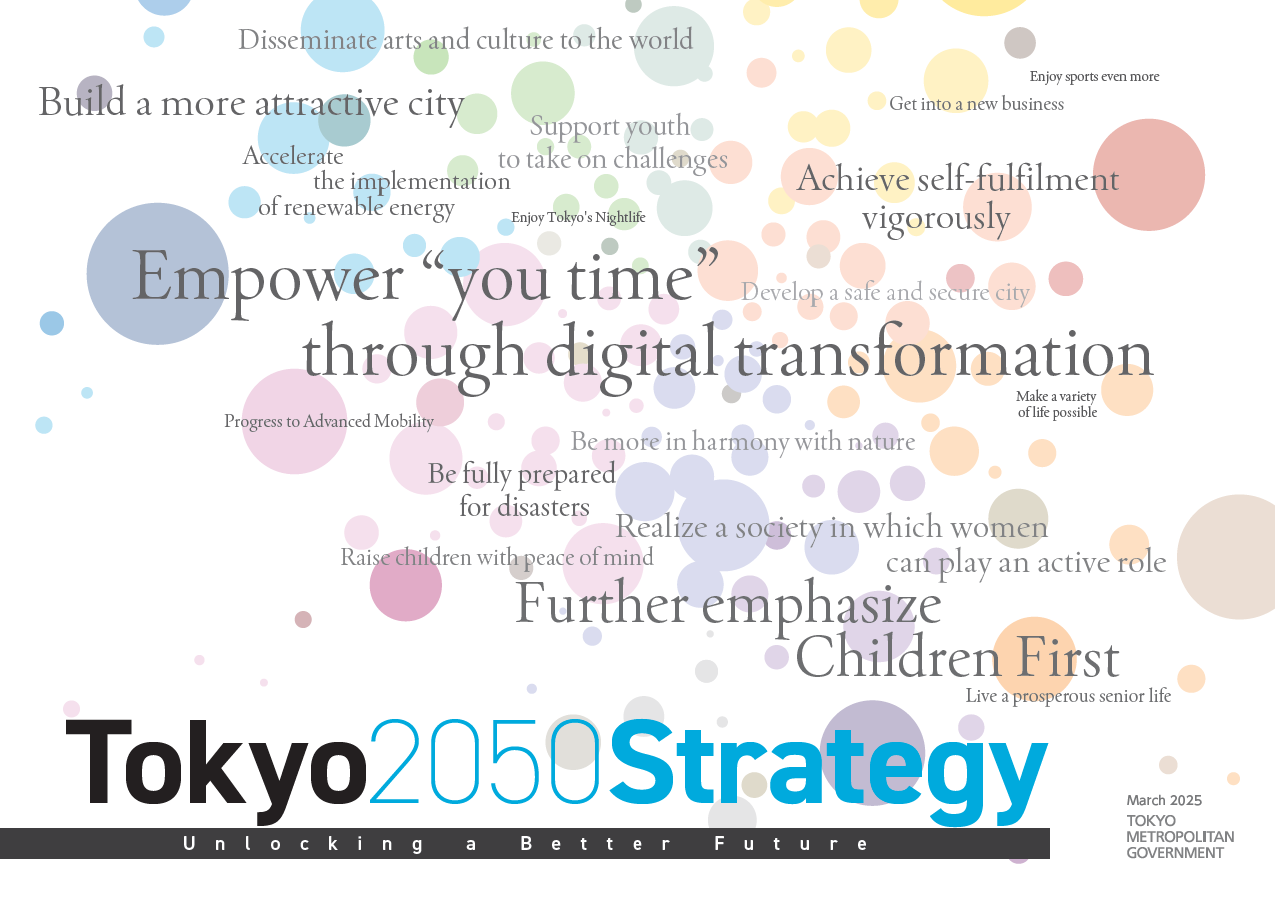
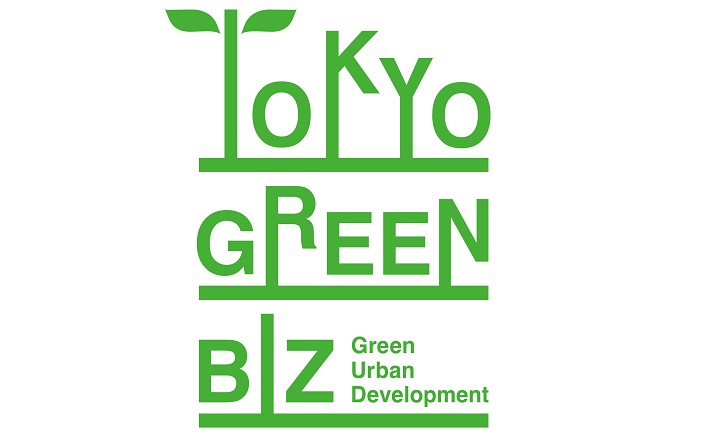
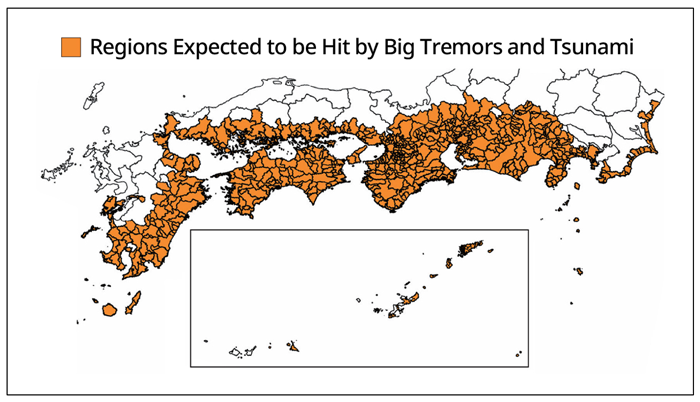

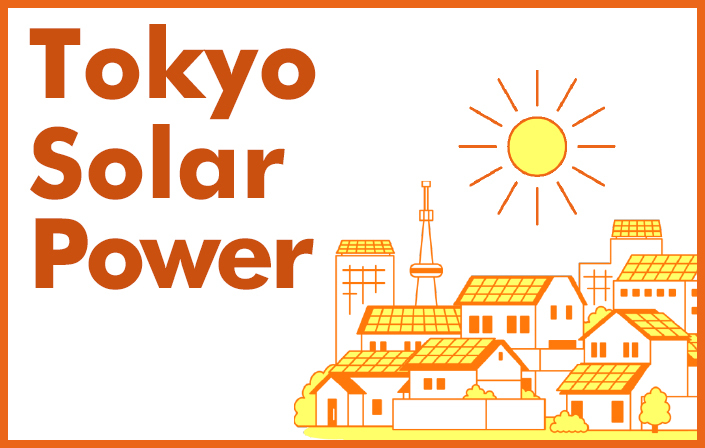
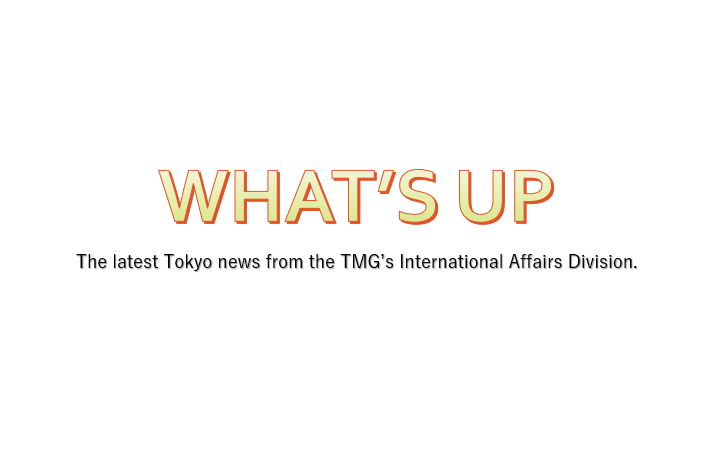
Recommended for You
Govenor Koike Calls for Innovation at FII PRIORITY Asia Summit 2025
December 1, 2025
Tokyo Governor’s Mideast Tour Highlights Multi-City Resilience Efforts and Japanese Capital’s Global Presence
November 27, 2025
Japan-U.S. Leadership Summit Held at UNU in Tokyo
October 10, 2025
Tokyo 2025 Deaflympics Paves the Path to an ‘Inclusive Society’
December 26, 2025
Tokyo 2025 Deaflympics (Part 1): A Leap Towards an ‘Inclusive Society’ with Sign Language
November 12, 2025
Championing Inclusive Growth: OECD and Tokyo’s Shared Vision
November 13, 2025
Call to Action for Hydrogen Use at “HENCA Tokyo 2025”
October 21, 2025
Governor Koike Inspects Hachijojima Island Hit by Typhoons
October 15, 2025
Governor Koike Meets with ICSD President Adam Kosa
November 28, 2025
Governor Koike Attends the Commendation Ceremony for the ‘Tokyo Eco Builders Award’ for FY2025
November 27, 2025